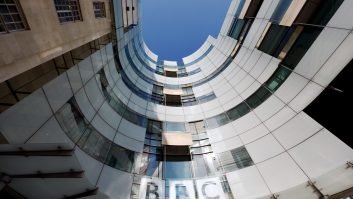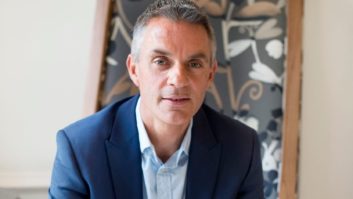A House of Lords committee has warned the BBC faces “stagnation and decline” if it fails to set out a “bold new plan” for its future.
A report published by the cross-party Lords Communications and Digital Committee warns that rapid changes in media, technology and consumer habits combined with increasing competition, mean the BBC must define its role and publish a new vision for how it will deliver for audiences and benefit the nation.
The report suggests the plan needs to include costed options for future funding models that go beyond the existing licence fee system, which the Committee described as “regressive”.
The peers suggested the current public funding model will remain necessary beyond the existing licence fee settlement, but for any form of public funding to remain legitimate, the BBC “must do a better job of representing the full range of perspectives and communities that make up our diverse society”.
The report also states:
There remains a “vital” role for a BBC which delivers value and benefit to audiences, society, and the UK’s global position – but that role needs to be defined more clearly and inform a bold new plan for the future, which sets out how the BBC will change.
The existing licence fee has several benefits but also drawbacks. The link to a television set looks increasingly outdated. Its regressive nature means that regularly raising the fee to the levels the BBC requires will hit the poorest hardest.
There are alternatives, states the report. A universal household levy linked to council tax bills is one option that could take greater account of people’s ability to pay. Others include a ring-fenced income tax and reforming the existing licence fee to provide discounts for low-income households.
The BBC will need to expand its commercial operations to generate additional streams of funding, it added. This could include exploring options for domestic and/or international hybrid-subscription services.
A model based fully on subscription or advertising would not work, added the Lords. Nor would a BBC funded wholly by government grants.
The BBC will need to operate within a nimble regulatory framework in future. It currently takes too long for sensible changes to be introduced under the current arrangements with Ofcom, said the report.
Chair of the Committee, Baroness Stowell of Beeston, said: “The greatest threat to the BBC’s future isn’t a battle amongst politicians about the licence fee – though decisions about how it is funded are important to get right and becoming increasingly urgent. The real danger is if the BBC doesn’t seize this opportunity to reform and demonstrate why it’s of value to audiences in this new world of endless choice.
“That’s why the Committee concluded that, when it comes to what the BBC does, the status quo is not an option,” she added. “There will be choices for the government and parliament to make when it comes to funding mechanisms. But these decisions must be informed by a bold vision of what the BBC exists for and what it will deliver. So first, we are calling on the BBC to define its role more clearly and respond confidently with a plan that is positively ambitious about what and how it will change to serve the public interest in this fast-changing world.”
In a statement, the BBC said: “We welcome the Lord’s report. We agree we need to keep reforming which is what we have been doing at pace. Clearly the BBC needs to keep relevant and we welcome the report’s finding that a market failure BBC wouldn’t be a good outcome. Beyond that, we are open minded about the future and it is right there is a debate on whether the licence fee needs to evolve and if so, what comes next.”







